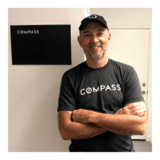Summary
In our remote world, we as researchers need new ways to help our stakeholders cut through the noise to engage and digest our insights more meaningfully through thoughtful and intentional self-directed learning techniques. In this short session, we will discuss 4 key self-directed learning techniques to help you increase engagement around your insights during our debriefing sessions with your stakeholders.
Key Insights
-
•
Self-directed learning can empower stakeholders to engage with research insights on their own terms, increasing uptake and action.
-
•
Designing the context of insight sharing intentionally—considering group size, goals, and stakeholder needs—improves clarity and impact.
-
•
Emotional literacy, or checking in on participants’ feelings before sharing insights, helps prime stakeholders for better receptiveness.
-
•
Asynchronous collaboration within live sessions encourages quieter voices to be heard and builds rich discussions around insights.
-
•
Using digital tools that allow commenting directly on research reports democratizes feedback and documents conversations in real time.
-
•
Early engagement of stakeholders in framing research questions fosters buy-in and makes the research more relevant to their concerns.
-
•
Not everyone needs to read or engage with all research content; focusing on the most influential stakeholders optimizes effort and impact.
-
•
Combining synchronous and asynchronous modes in insight sharing sessions can manage Zoom fatigue and diversify participation.
-
•
Explicitly naming stakeholders' questions in research reports increases their sense of being seen and encourages participation.
-
•
Insight sharing should shift from just delivering information to designing a learning experience tailored to stakeholders’ strengths and interests.
Notable Quotes
"Change is the only constant, so designing insight sharing with self-directed learning is critical."
"Caring for people emotionally during insight sessions directly impacts their productivity and willingness to engage."
"Sometimes the loudest voices dominate, but asynchronous collaboration helps give quieter voices a chance to speak."
"I literally ask, how are you feeling right now? It’s about connecting on a human level before diving into data."
"Before sharing insights, I try to prime the room by acknowledging feelings and starting fresh."
"Sharing insights is like creating a learning space where stakeholders can use the information in their own way."
"Sending reports early and inviting comments turns the insight session into more of a discussion than a presentation."
"Everyone wants to see themselves reflected in the research questions and findings."
"Focus your research report on the three most influential stakeholders, not everyone."
"Combining synchronous and asynchronous communication within one session gets us from awareness to action."
Or choose a question:
















More Videos

"You do not have to go publicly thank the employer who just laid you off. They’ll be fine without it."
Corey Nelson Amy SanteeLayoffs
November 15, 2022

"I literally would have to jump up in meetings to introduce myself as the director just to be recognized."
Lisanne NormanWhy I Left Research
March 27, 2023

"Friction in a situation can cause a person to switch thinking styles, not personality types."
Indi YoungThinking styles: Mend hidden cracks in your market
January 8, 2025

"A Slack bot that sends random customer quotes encourages ongoing learning and discovery."
Crystal YanBuilding a Customer-Centric Culture
March 30, 2020

"Let the community lead from the very first step: they will determine goals, participants, and logistics."
Victor UdoewaRadical Participatory Design: Decolonizing Participatory Design Processes
December 10, 2021

"A lot of my team are introverts; we do daily coffee chats to keep the team connected remotely."
Amy Jiménez Márquez Michael J. Metts Joie ChungThe Atypical UX Manager Path
July 23, 2020

"Accessibility is a spectrum; if frequent tasks require assistance, the product is inaccessible for me."
Sam ProulxSUS: A System Unusable for Twenty Percent of the Population
June 9, 2021

"I’ve onboarded 80% of the design and CX department, and it really shapes their trajectory and connection to culture."
Allison SandersOperating with Purpose
January 8, 2024

"Craft means intent and care even in digital products; for example, the bounce animation of Google Maps’ pin shows someone cared."
Uday Gajendar Adam RichardsonFrom AI to Zeitgeist: Theory as the design antidote to AI hype
March 27, 2025
















